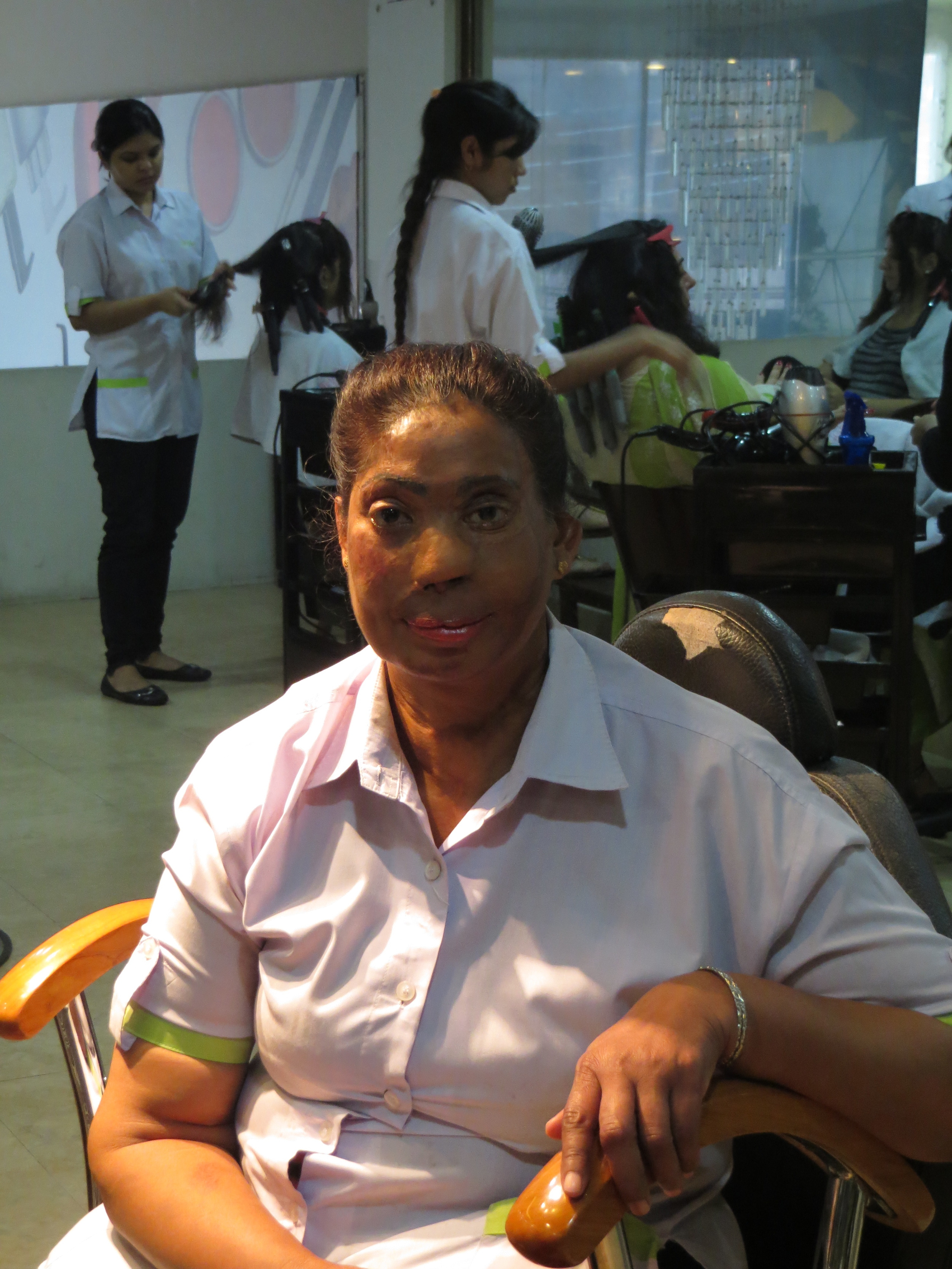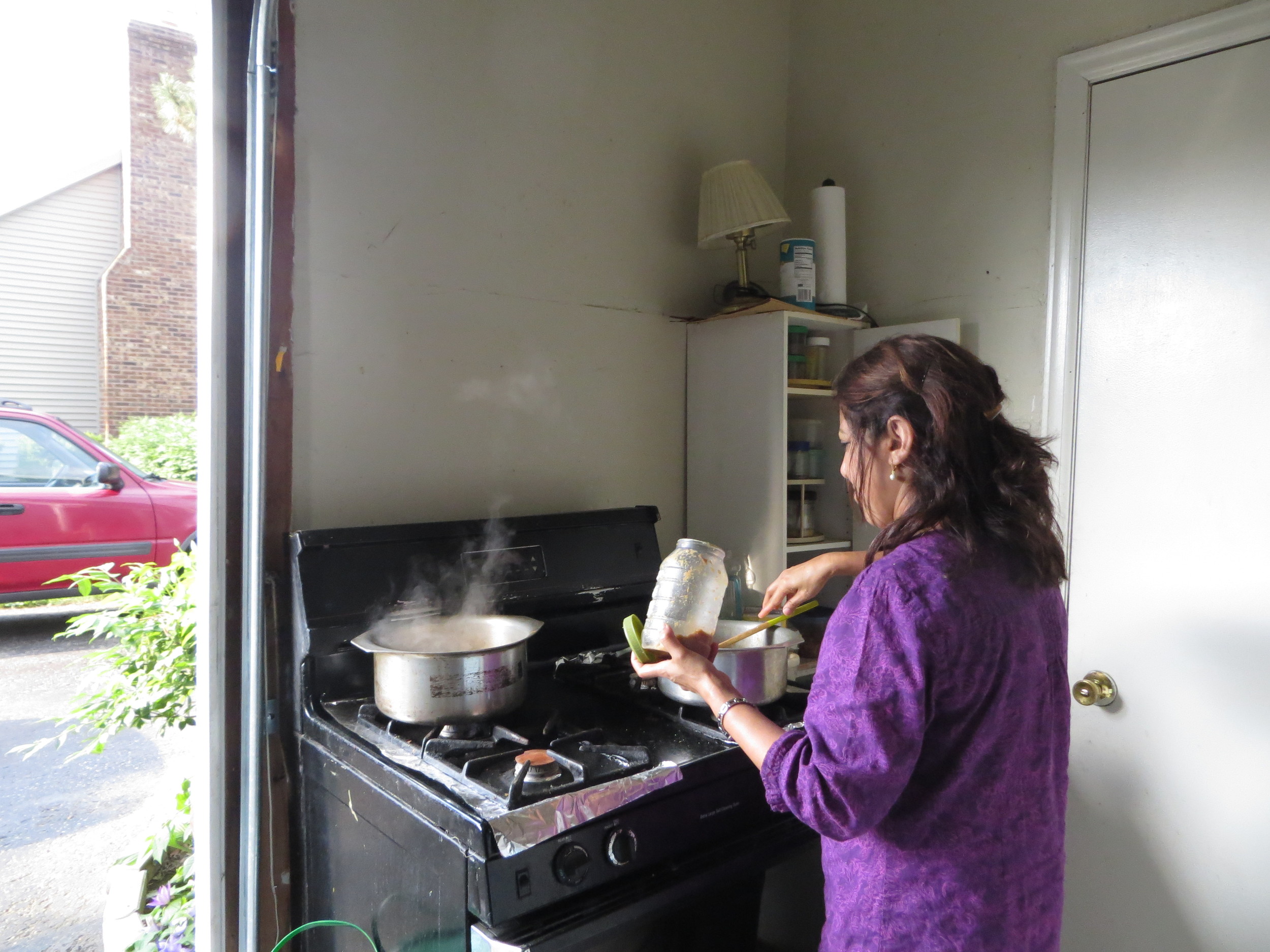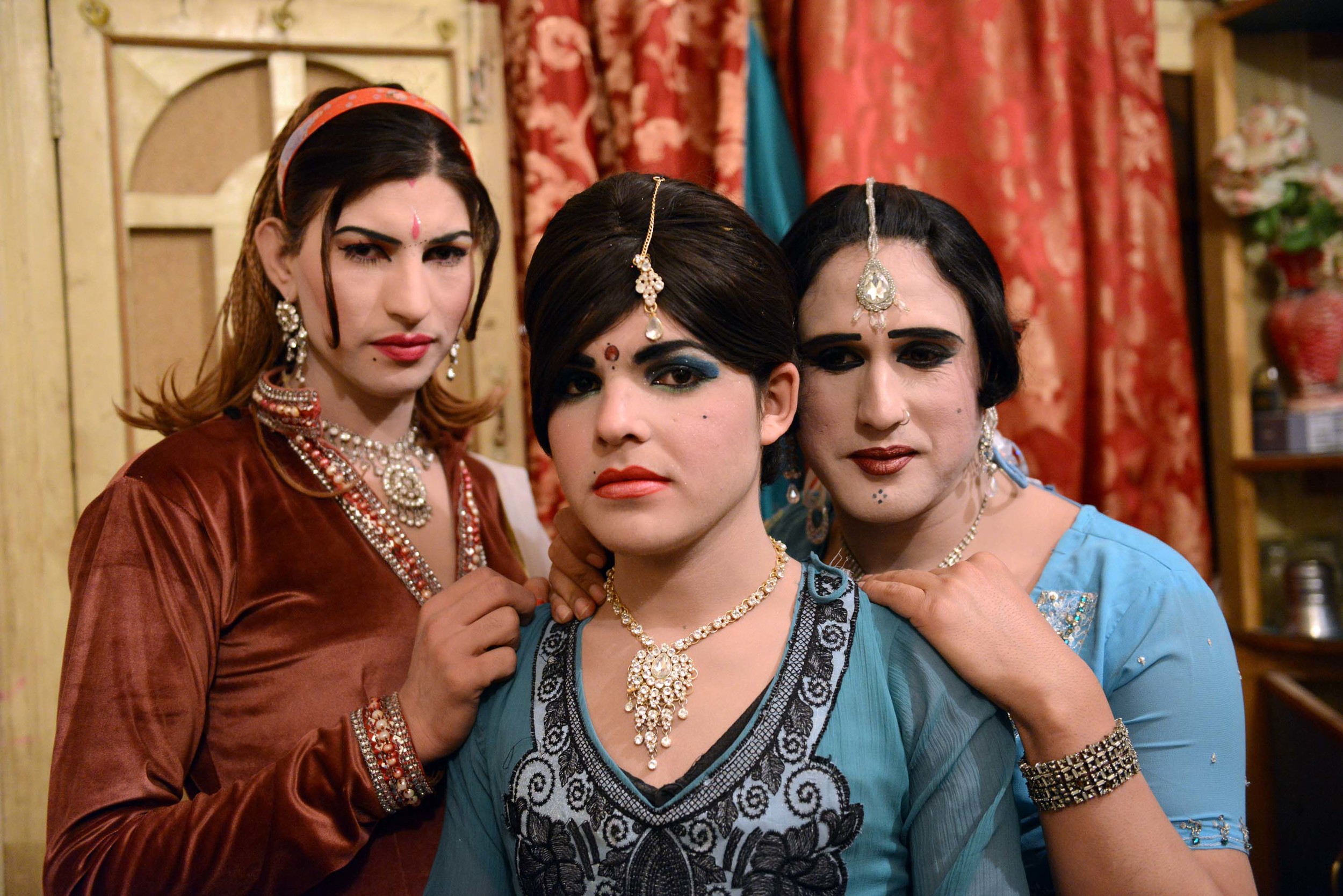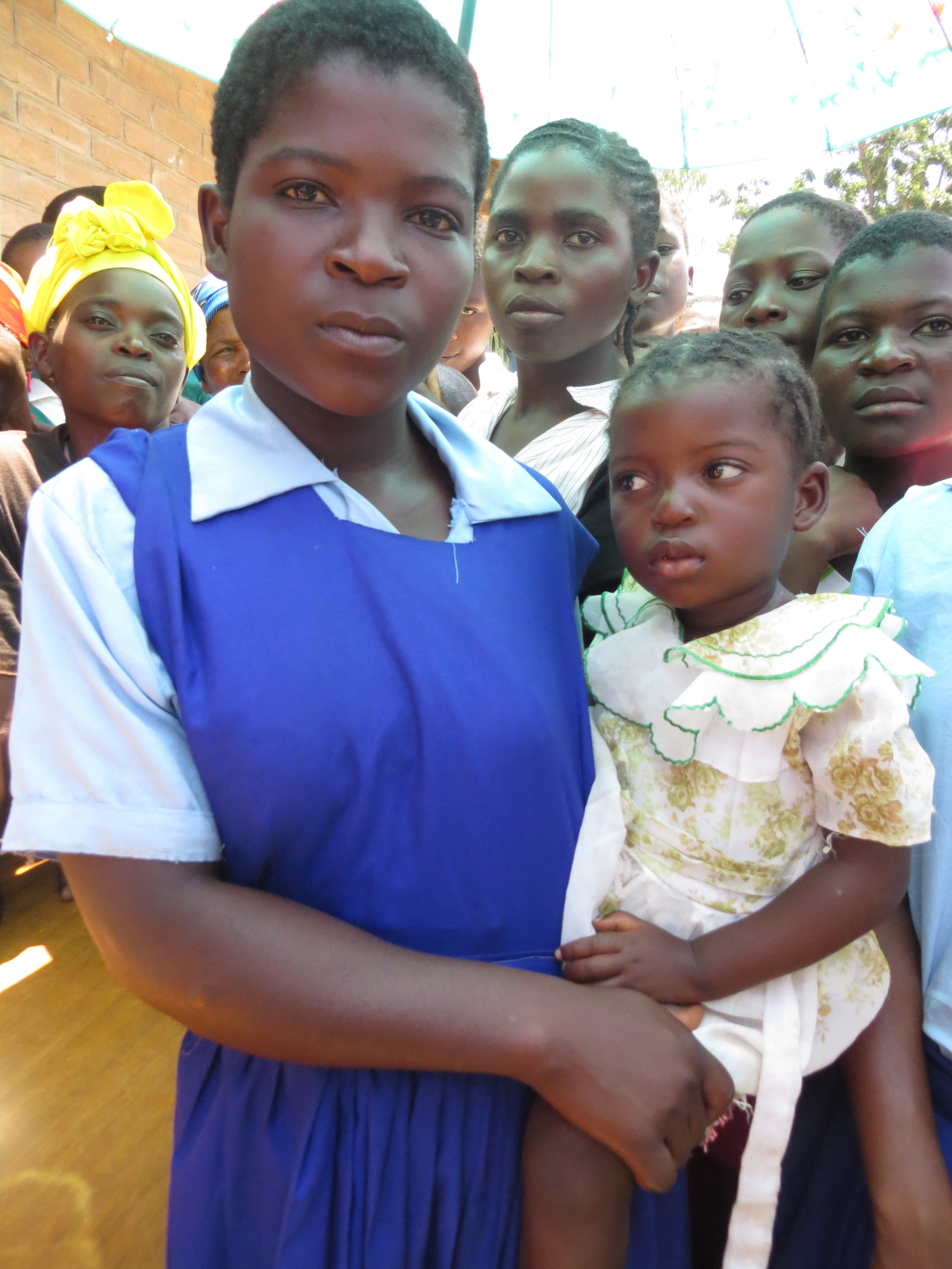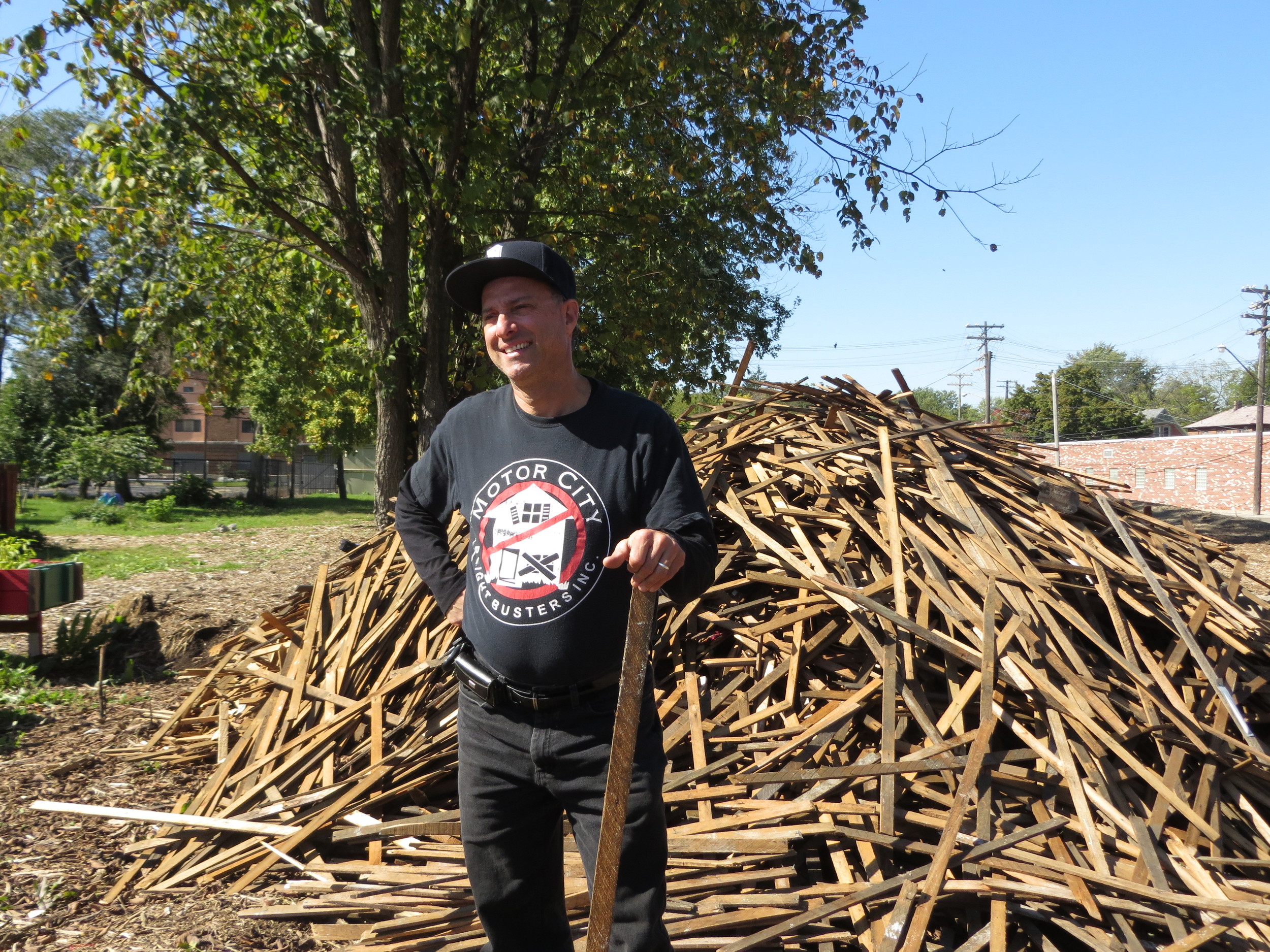“'She was rude. She was impolite, and I thought, "Oh my God, [it's the] end of the day and here is a difficult client,"' [Mussarat] Misbah recalls in lilting English from her office in Depilex’s Lahore headquarters. Her exasperation turned to shock when the woman removed her veil. 'I sat down because I thought there was no life left in my legs,' she says, 'because right in front of me was a young girl who was without a face.'
'"You claim to be a beautician and go on TV to give beauty tips, now do something for me,"' the acid burn survivor demanded. These words struck a chord with Misbah, who didn’t think it was enough to provide manis and pedis to the country’s elite anymore. She vowed to help the woman before her, and when she was unable to reach her again, pressed on anyway. 'That was the beginning of [the] Depilex SmileAgain Foundation.'"
Find out more about how the head of one of Pakistan's most celebrated high-end salons came to serve acid burn survivors -- and how those survivors feel about their clients complaints of split ends or overgrown cuticles given the severe damage wrought on their faces and bodies. You can read the article over at VICE.
